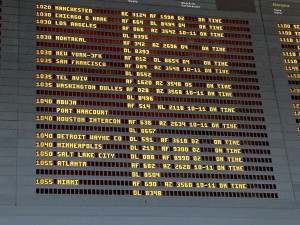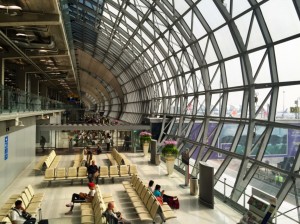We have heard the news about airlines flying within the EU and the issue of Delay Repay, the Denied  Boarding Regulation, but how does this affect you as an airline?
Boarding Regulation, but how does this affect you as an airline?
The Supreme Court ruling means any airline flying from any EU airport or a European airline flying passengers from outside the EU into an EU airport can be held responsible for the delay. Except in circumstances beyond the airlines control such as severe weather.
So what impact does this have on the airline?
Monetary costs to the airline…
As the compensation is not linked to the price of the ticket the monetary cost can quite quickly look scary. For example, a ticket on a low-cost carrier on a short haul flight in Europe of £20 could result in compensation for a 3-hour delay of up to €250. Multiply that by the number of passengers (120) in addition to all the operational costs of running the flight and the number start to become very large.
Data challenges for the airline.
The first is the need to retain passenger booking data (PNR) and the second is storing the Departure Control Systems (DCS) data for 6 years. Lets let that sink in…
For a small airline 6 years of data 365 days x 6 years = 2190 days of data multiplied by 100 flights a day (British Airways fly over 750 flight per weekday) and again multiplied by 170 passengers per flight. All these passengers bookings may need to be searched, cross-checked against the schedule and then against the wheels up time to see if there was a delay. That is only 37,230,000 passengers in the system. Even to a techy that is a lot of data.
So How can Flight Register Help?
Flight Register makes cost effective PNR databases. Paid for on a Software as a Service contract, no setup. The costs are very low and depend on the size of the airline.
What we store for your airline.
We take a PNR batch feed from your reservation system e.g. Amadeus, SITA, Navitaire, etc. Then we ask for all operational messages to be copied to our servers. Some reservation systems do update if the passenger has flown, but not all.
The PNR gives the details of the passenger booking and the DCS operational messages gives a view to the schedule as it was on the day and tells if there was a delay.
All the data is merged within the PNR Operations database allowing a view of what happened on any day within the last 6 years. Flight Register can historically import data into the PNR database.
We are planning an API web interface that passengers can fill out prior to speaking to a member of staff which checks if there was a delay to their travel.
If you would like to get in touch with one of our staff to talk further about the system please get in contact on +44 (0)1865 600 601
Delay Repay the Denied Boarding Regulation Background
As a result of the Supreme Court’s ruling on 31st October 2014, passengers are now eligible to claim compensation for up to 6 years after a delayed flight. this means that airlines will need to retain both passenger and flight data for a period of 6 years if they are to safeguard themselves against fraudulent claims.
The Supreme Court’s decision in the Huzar ve Jet2 and Dawson vs Thomson cases means that passengers are now eligible to claim compensation up to 6 years after a delayed flight. This includes instances where the flight was delayed due to routine technical faults.
Passengers are eligible for compensation up to £470 GBP or €600 depending on the length of the flight, plus expenses when their arrival is delayed by more than 3 hours and the cause of the disruption is within the carrier’s control.
In the Dawson vs Thomson case the airline argued that claims for compensation must be made within 2 years of the event, but the court ruled in Mr Dawson’s favour, meaning passengers now have up to 6 years in which to apply.
This ruling means that passengers who have previously submitted a claim which has been turned down on the grounds of a technical defect or because it was more than 2 years old can now resubmit their claims.
